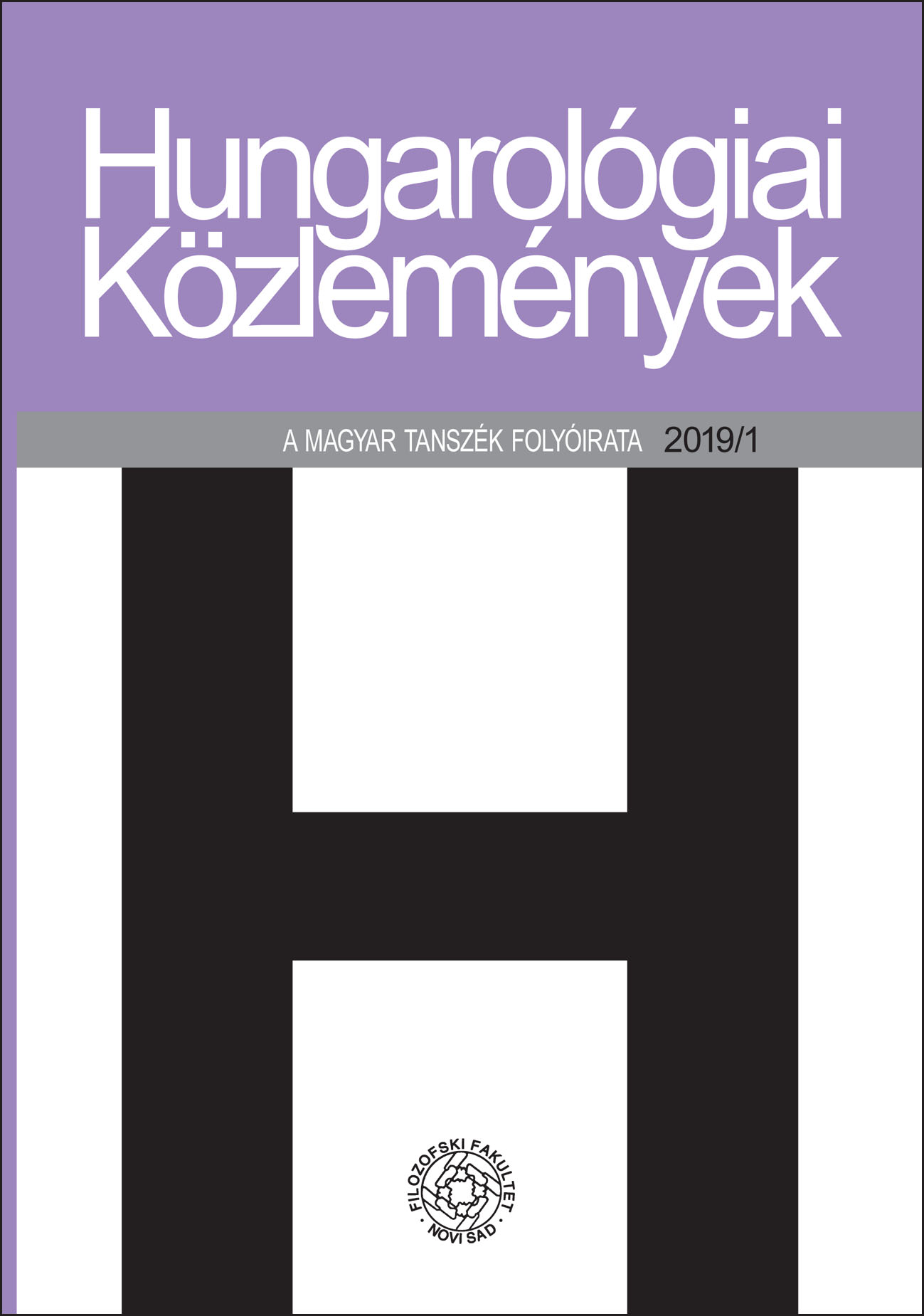A PSYCHÉ ÉS A TÜKÖR
Gaál Erzsébet Temetés-rendezéséről
Absztrakt
Az államszocializmus színházi keretein kívül működő avantgárd színház a realizmus konstrukciójával éppúgy szembenéz, mint a hivatalos közegben alkotók. Tanulmányomban a valóság, a realizmus, a tükrözés szavakkal jelzett nyelvi auto- és sematizmust Derrida és Gaál filozófiai és színházi alkotásainak összevetésével vizsgálom. Közhely, hogy a színházi kommunikáció a l’Autre fogalmát gyakran az artaud-i Double jelenségéhez társítja, miként a színészt a szerephez, az átváltozást az alakításhoz, a karaktert a személyiséghez, az ismétlést az azonossághoz stb., míg a helyzetbe lépés és visszalépés mozgásban lévő, alakuló határait szokatlanul erős szabályokhoz köti. Úgy vélem, igazi inventaire áll elénk Gaál Erzsébet 1989-es Nádas-bemutatójával, mely a rendszerváltás pillanatának határátlépő karakterét a Mást konstruáló, a Másikat megmutató, Hasonmást kereső és állító alkotó fölfedező gesztusával tárja elénk.
Hivatkozások
Artaud, Antonin. 1985. A Színház és Hasonmása. Ford. Betlen János. In Uő: A könyörtelen színház. o.? Budapest: Gondolat Kiadó.
Balassa Péter. 1980. Mindnyájan benne vagyunk. Kommentár Nádas Péter Temetés című drámája elé. Színház, nov. Drámamelléklet 1. o.?
Bérczes László. 1989. Két ember a térben. Film Színház Muzsika, máj. 6. o.?
Bogácsi Erzsébet. 1989. A közös csend. Magyar Nemzet, jún. 9. o.?
Csizner Ildikó. 1989. Csönd-duett. Új Tükör, ápr. 23. o.?
Dénes József. 2016. Szökésben. Budapest: Jaffa.
Derrida, Jacques. 2007. A megfújt beszéd. Ford. Simon Vanda. Theatron 2007/ősz–tél. o.?
Derrida, Jacques. 2017. Psyché – A más föltalálása. Ford. Kicsák Lóránt. Kéziratban.
Dévényi Róbert. 1984. Láttuk-hallottuk. Petőfi rádió, 1982. máj. 7. 10.45. leirat: OSzMI archívum.
Gaál Erzsébet. 1989. Szakítani a hagyományossal. Karádi Zsolt interjúja. Gaál Erzsébet vallomása a művészetről, a magyar drámáról. Kelet-Magyarország, máj. 13. 9. (hétvégi melléklet).
Gaál Erzsébet. 1996. Ábécé: Gaál Erzsébet. Tollár Mónika interjúja. Szín-Világ (a Nemzeti Színház Lapja), ápr.–máj. o.?
Halász Péter. 1991. Két séta gőzfürdő után. Színház, okt.–nov. 4–14. 11.
Kállai Katalin. 1989. Nyíregyháza kétszer. Esti Hírlap, máj. 15. o.?
Karádi Zsolt. 1989. Mintha lenne mintha. Kelet-Magyarország, márc. 18. o.?
Molnár Gál Péter. 1989. Elvtárs-epatírozó. Népszabadság, márc. 18. o.?
Nádas Péter. 1983. Egy próbanapló utolsó lapjai. 149–189. Budapest: Magvető Kiadó.
Nádas Péter. 1996. Temetés. In Uő: Drámák. 177–274. Pécs: Jelenkor.
Nánay István. 1989. A rítus vonzásában. Színház, júl. 1–6. o.?
Siegmund, Gerald. 1999. A színház mint emlékezet. Ford. Kékesi-Kun Árpád. Theatron. 1999. tavasz. o.?
Szinopszis: OSzMI archívum és nyíregyházi Színház archívuma: http://www.moriczszinhaz.hu/archivum?id=595. (2019. jún. 6.)
Ubersfeld, Anne. 1996. Les termes clés de l’analyse du théâtre. Paris: Seuil.
Weber, Samuel. 2004. ’The Virtual Reality of Theater’: Antonin Artaud. In Uő: Theatricality as Medium. 277–294. New York: Fordham University Press.
Zala Szilárd Zoltán. 1998. Das ewig Weibliche. Gaál Erzsébet pályaképe helyett – merő szubjektivitás. Ellenfény, 1998/4. őszelő. o.?








